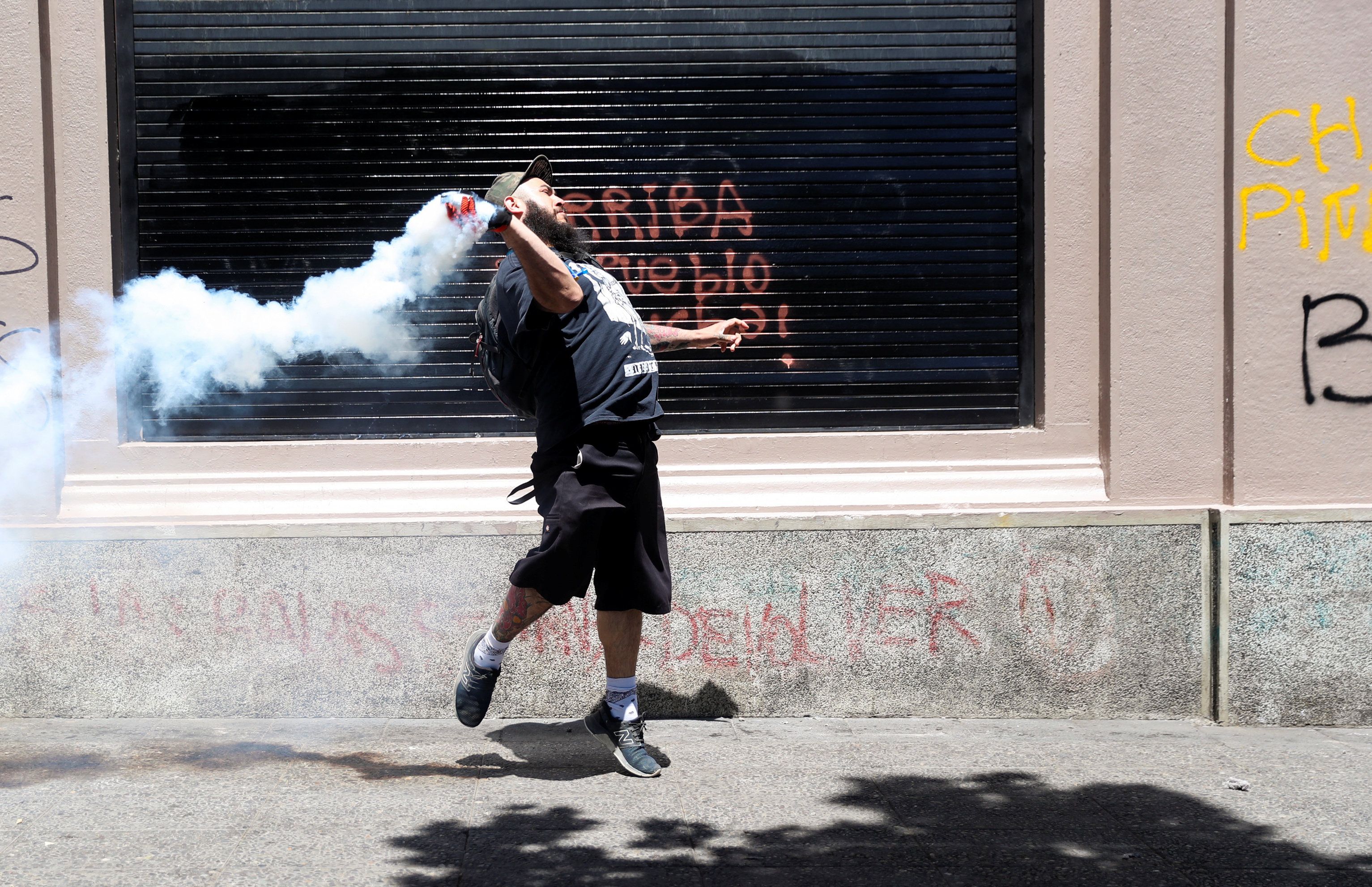Across the globe, people are hitting the streets to demand changes from their governments. But one region where discontent with current leaders seems particularly widespread at the moment is Latin America. Consider the following:
Chile: One of the region's most prosperous and stable nations is also one of the most unequal countries on earth by some measures. That's why a recent 3 percent metro fare increase in the capital, Santiago, touched off massive ongoing (and spectacularly musical) protests across the country that threaten the survival of center-right president Sebastian Pinera's government.
Bolivia: Protesters and general strikers are demanding a recount of last week's presidential election, in which stalwart left-winger Evo Morales skirted term limits and won a fourth term under apparently fishy circumstances.
Argentina: Voters on Sunday booted market-friendly President Mauricio Macri after just one term, giving a fresh chance to the left-populist Peronists who had run the country until Macri's own upstart victory in 2015.
Honduras: Protesters want the ouster of President Juan Orlando Hernandez, whose brother was just convicted in a US court of "state sponsored drug trafficking." Hernandez was already on thin ice with his own people: in 2015 he maneuvered around term limits and last year won re-election in a controversial vote marred by fraud allegations and violent protests.
Haiti: Violent protests calling for the resignation of President Jovenel Moise, who is implicated in a corruption scandal, have paralyzed the country and threatened to unleash a humanitarian disaster in what is already the poorest country in the Western hemisphere.
Ecuador: Hundreds of thousands took to the streets recently in anger at a fuel subsidy cut meant to help balance the budget and reduce emissions. While the subsidies have been restored and the protests have ended, the government is in the same difficult position as before: how to balance its books without angering a population reluctant to make fresh sacrifices while elites live in luxury.
Uruguay: The progressive Broad Front coalition has governed since 2005, but with the economy flagging and crime rising, their presidential candidate Daniel Martinez on Sunday failed to win outright in the first round of the country's presidential elections. As a result, the youthful center-right candidate Luis Alberto Lacalle is positioned to pull off an upset in the November 24 runoff.
Why so mad? In the first decade and a half of the 21st century, Latin America had it pretty good. A commodity boom lifted all boats, bringing tens of millions of people out of poverty. But as people's horizons began to expand, so did their expectations: of continually rising living standards, cleaner governments, safer cities, improved schools, and better roads.
The end of the commodity boom left a lot of ill-prepared governments high and dry, while a rash of corruption scandals rocked the region. And although inequality has fallen over the past twenty years, it's still stubbornly high.
This isn't about left vs right, it's about outsiders vs insiders. Nearly 80 percent of Latin Americans say existing parties don't govern in the popular interest, up from about 60 percent ten years ago, according to the pollster Latinobarometro. In just the past two years, for example, Brazil has elected an upstart from the radical right as president, while Mexico voted in a leftwing nationalist.
Things aren't going to get any easier. People's expectations and grievances are high, but governments have less money to spread around. Expect the social rumblings in the region to get worse before they get better.
